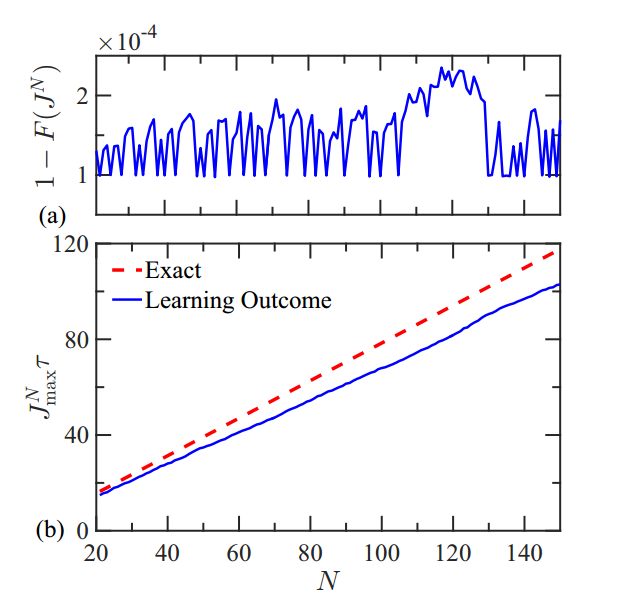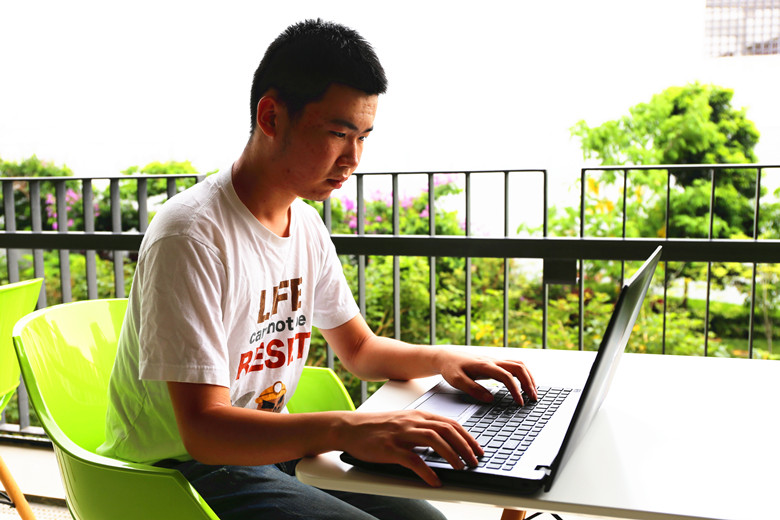Researchers make breakthrough in magnetic geometry-induced quantum geometry and nonlinear transport
2025-06-06SUSTech hosts IOP Forum with President of Institute of Physics Sir Keith Burnett
2025-03-26Researchers discover unusual thermal conductivity in high-symmetry single crystals
2025-03-26New efficient method detects quantum temporal correlations
2025-03-26Researchers explore unconventional magnons predicted by spin space groups
2025-03-25Recently, Cui Ziwei, a Class of 2014 student of SUSTech's Physics Department, supervised by Prof. Man-Hong Yung and collaborated with Prof. Xin Wong of the Hong Kong City University, published as the co-first author in Physics Review A (SCI), which explores the effectiveness of reinforcement learning on quantum control problems. The title of the paper is "Automatic spin-chain learning to explore the quantum speed limit".

State transfer in 1-dimension spin chain could shuttle quantum information efficiently and accurately, which is key to the scalability of quantum computation and quantum simulation. While extensive research has been dedicated to improve the fidelity of the transfer, relatively less attention has been paid to the efficiency, i.e., the speed of the state transfer. In this work, we aim at finding protocols for two models through machine learning, and the result are faster than previously known ones.

In time-independent case, we try to find a series of coupling strength which can allow a high accuracy and efficiency state transfer by design and minimize a cost function. The self-learning algorithm offers a new protocol, which has no obvious differences with the perfect state transfer protocol. However, the transfer speed can be enhanced by more than 10% by sacrificing only 5×〖10〗^(-4) of infidelity when the length is longer.
In time-dependent case, we use deep Q-learning, which is one type of reinforcement learning, to find dynamical control of external magnetic fields in a uniform spin chain. The result shows a speed up than previous known results via Krotov method, which shows that reinforcement learning can be a powerful tool for quantum control problems.
Cui Ziwei is an undergraduate in Physics Department of our university. He will graduate in July this year and is recommended to start his master program in SUSTech. Since he joined Professor Yung Man-Hong’s research group in the Department of physics in the second semester of the sophomore year, he has demonstrated good comprehension in quantum computation and simulation. In the above-mentioned work, he proposed the idea of enhanced learning and external magnetic fields and finished the coding and testing.

This work is supported by the Research Grants Council of the Hong Kong Special Administrative Region, China (Grants No. CityU 21300116 and No. CityU 11303617), the National Natural Science Foundation of China (Grant No. 11604277, 11405093), Natural Science Foundation of Guangdong Province (Grant No. 2017B030308003), and the Science, Technology and Innovation Commission of Shenzhen Municipality (Grants No. ZDSYS20170303165926217 and No. JCYJ20170412152620376). .